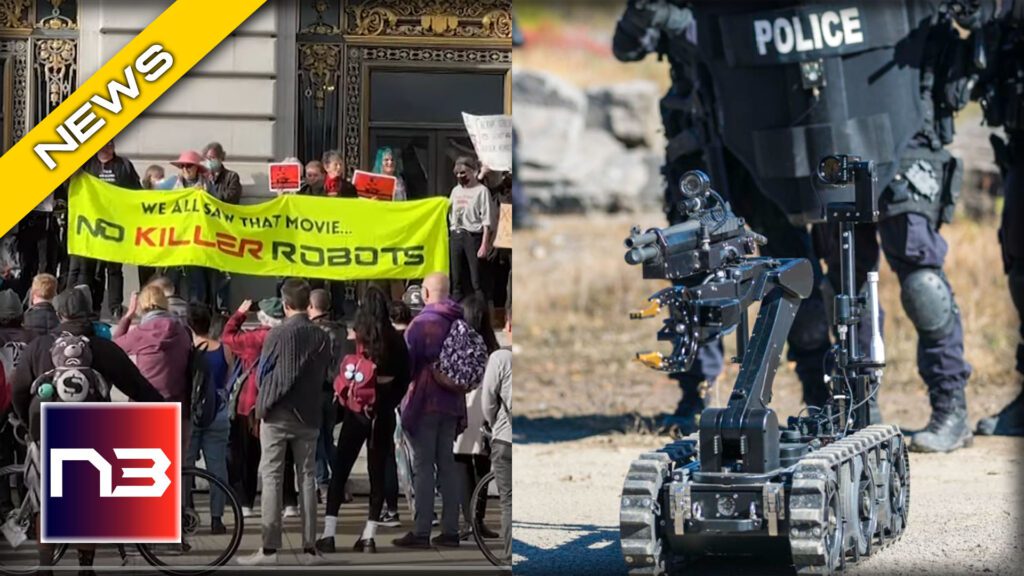After a great deal of public outcry and scrutiny, the city of San Francisco has decided to halt their policy that would change policing as we know it. Whether it’s for the good or bad, let’s find out.
Your freedom is at stake. Get the news that impacts America, tap subscribe to preserve it.
Recently, San Francisco made headlines when they announced that they were planning on rolling out lethally armed police robots on the streets in an effort to increase security. However, after a great deal of public outcry and scrutiny, the city has decided to halt their policy on allowing armed and lethal police robots on the streets.
The New York Post reports, as of now, robot police in San Francisco will not be allowed to use deadly force. The Board of Supervisors suspended a controversial policy Tuesday, one week after approving the use of potentially lethal remote-controlled robots in emergency situations.
A reversal vote of 8-3 does not formally end the policy. Modifications will be made to the ordinance by the city’s rules committee.
On Monday, protesters gathered on the steps of City Hall to stop police from accessing the “robot-killers.” As a result of severe backlash throughout the country, five board members reversed their decision to arm its existing police robot force with explosives.
Here is a video of protesters making their voices heard against the killer robots.
Although the supervisors continue to consider the controversial policy, police are allowed to deploy robots without weapons to check on potentially dangerous situations instead of sending in their personnel.
Clearly, this policy to deploy robots follows intense criticism against police in democrat-run cities, making it surprising to see liberal constituents realize the dangers of emotionless robots. Which begs the questions, are human cops better than robocops?
One of the Board members, Gordon Mar who reversed his vote had a redpill moment on a twitter chain, here is what he had to say.
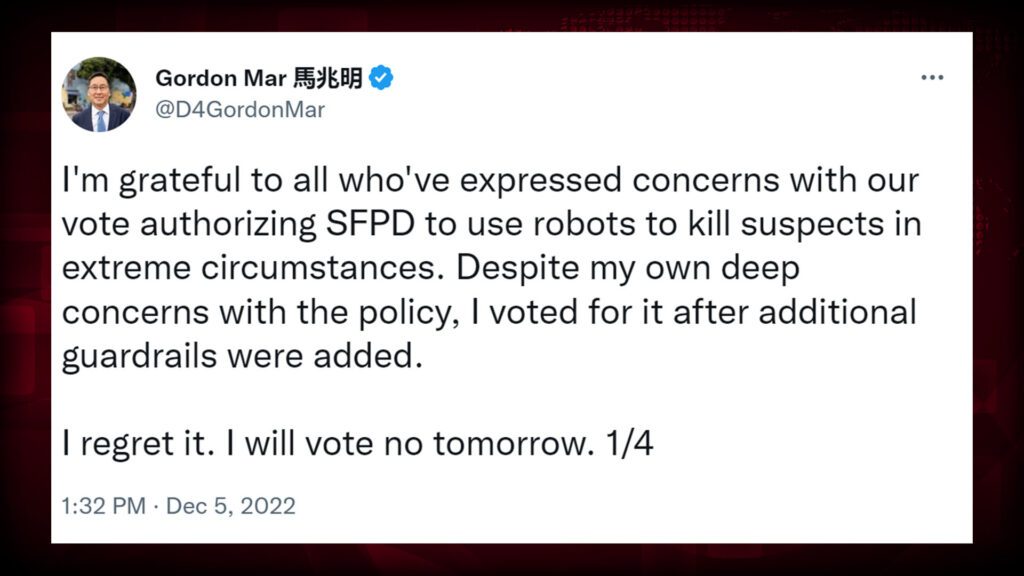

“I’m grateful to all who’ve expressed concerns with our vote authorizing SFPD to use robots to kill suspects in extreme circumstances. Despite my own deep concerns with the policy, I voted for it after additional guardrails were added. I regret it. I will vote no tomorrow.” 1/4
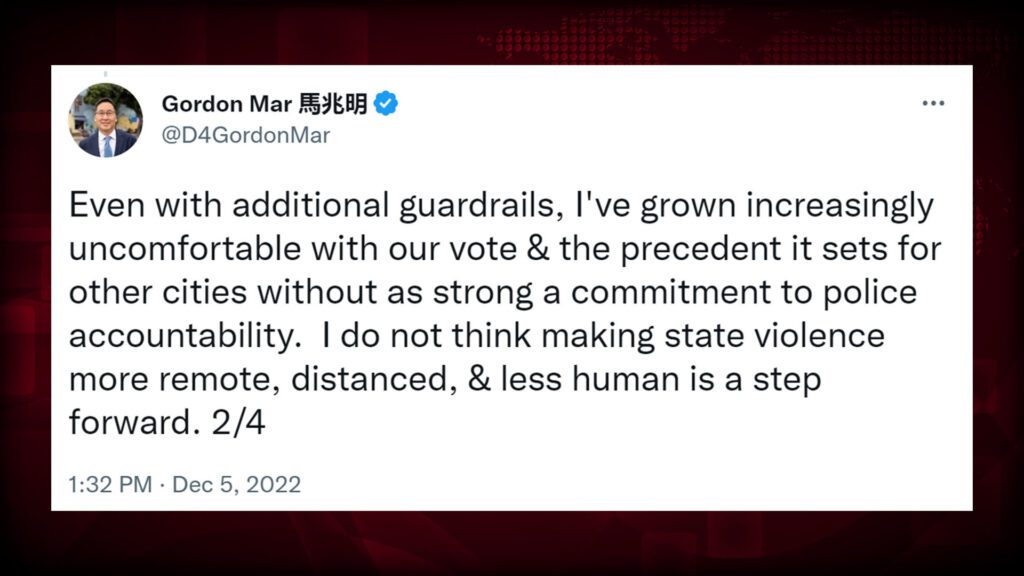

“Even with additional guardrails, I’ve grown increasingly uncomfortable with our vote & the precedent it sets for other cities without as strong a commitment to police accountability. I do not think making state violence more remote, distanced, & less human is a step forward.” 2/4
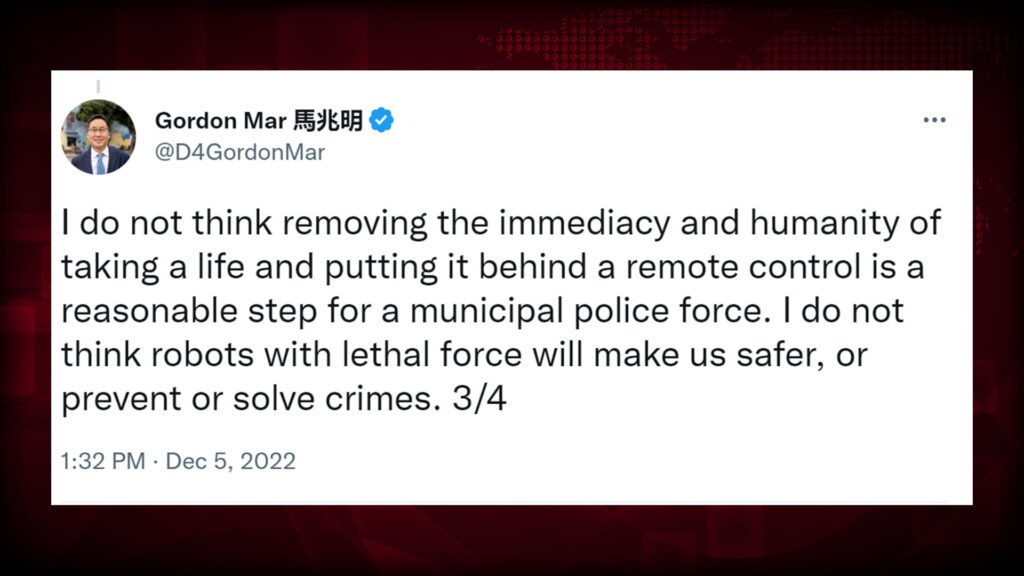

“I do not think removing the immediacy and humanity of taking a life and putting it behind a remote control is a reasonable step for a municipal police force. I do not think robots with lethal force will make us safer, or prevent or solve crimes.” 3/4
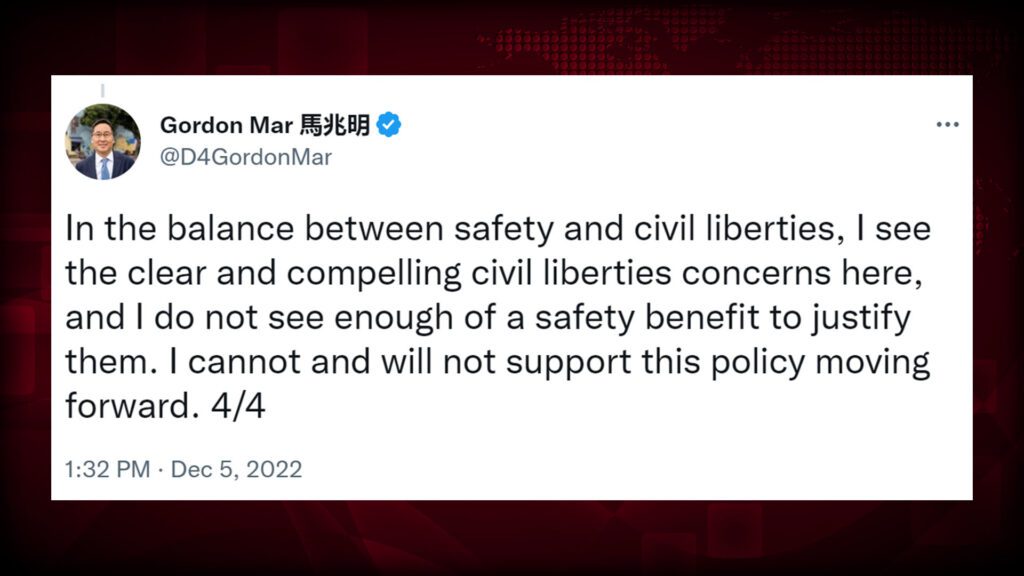

“In the balance between safety and civil liberties, I see the clear and compelling civil liberties concerns here, and I do not see enough of a safety benefit to justify them. I cannot and will not support this policy moving forward.” 4/4
Ladies and gentlemen, this indeed was a redpill moment.
The idea of allowing robotic cops on city streets was a bold move, and yet somehow still unsurprising when it comes to some of the more liberal cities. After all, many on the left are known for their willingness to rush to a new solution before fully analyzing an old problem – even if that means risking some human lives in the process. Thankfully, this time around, the citizens of these cities lucked out; due to swift action from lawmakers and residents alike, enough heads were put together to recognize that replacing humans for robots isn’t exactly a catalyst for change. The irony lies within the fact that their chosen solution is one taught from birth: obedience to the law is oftentimes more effective than trusting robots with no moral compass. The moral of the story should be, although human cops will never be perfect, they are far better than the alternatives.
Let’s continue this conversation, in the comments below.
